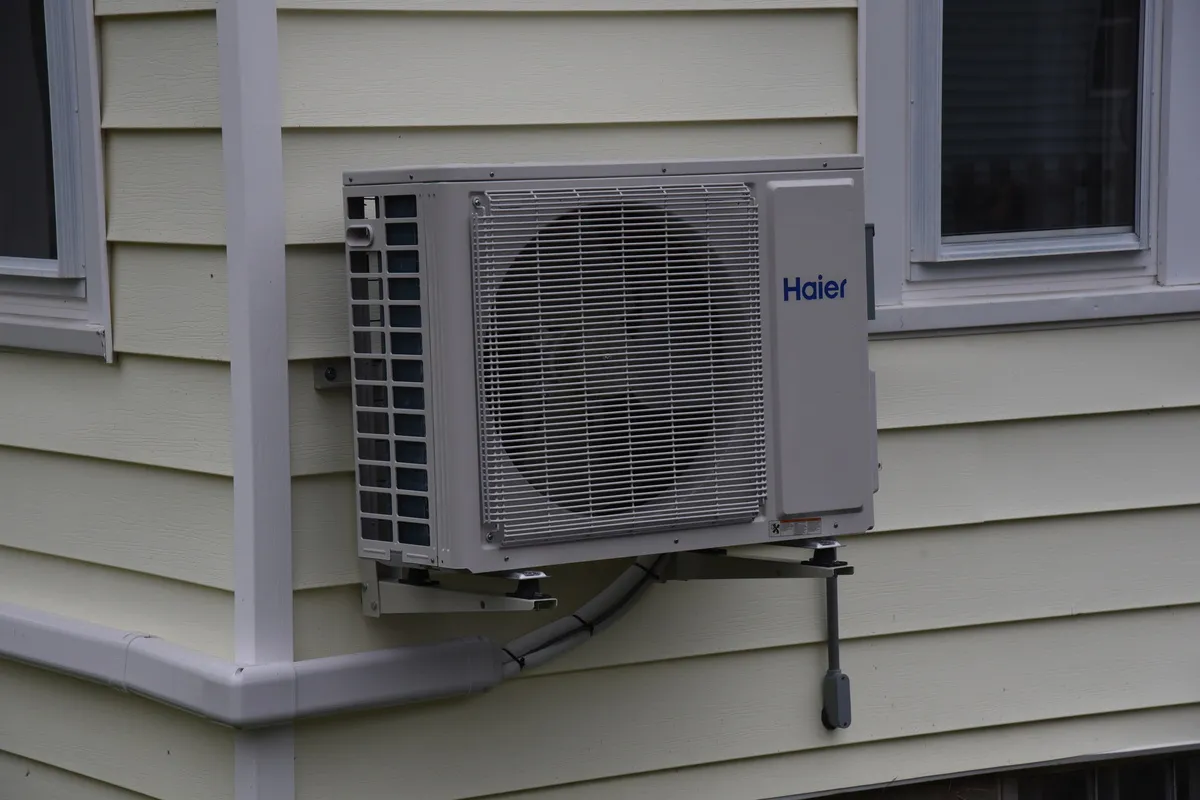Copyright Bangor Daily News

The BDN Opinion section operates independently and does not set news policies or contribute to reporting or editing articles elsewhere in the newspaper or on bangordailynews.com Johanna Thomas runs a one-woman company called Zapapa Handmade, which creates clothing and home goods using only deadstock and remnant natural fabrics. She previously had a long career in environmental conservation and splits her time between Kittery and Meddybemps. I’d spent my career in environmental science, everything from studying shorebirds to water conservation to oceans policy. So when we built our new house in Kittery in 2014, we were committed to an energy-efficient home. After we installed a heat pump heating and cooling system in the three-story home, there was a pleasant surprise: Idealism aside, we’d made a clean, quiet choice that kept us warm in the winter and cool in the summer — and saved us money. As a Mainer whose family goes back to the early 1800s in the state, I’m proud of the fact Maine has emerged as a national leader in the switch from oil and gas to electric heat pumps. I know the impetus for that transition — a movement led in large part by Gov. Janet Mills — was, like mine, fundamentally about cleaning up our air to improve our health and help slow climate change. But it’s becoming clear that whether you own a cabin, a camp, a mobile home or a three-story house, heat pumps are simply a better way to heat and cool. According to the nonprofit that runs the New England electricity grid, ISO-New England, Maine will have close to 250,000 heat pumps by 2030 — roughly 40 percent of the state’s homes and a percent that puts Maine among the nation’s leaders. The state estimates we have about 140,000 heat pump systems now thanks to Mills’ push and to the state’s serious and generous incentive programs. Not coincidentally, the share of homes in Maine using oil heat has dropped 20 percent in the last six years. It is crucial for two practical reasons that if you are thinking about switching from oil or gas that you look at those incentives and try to move quickly. Maine is facing the potential for surging costs depending on the direction of the constantly changing tariff situation with Canada. That’s because Maine imports roughly 80 percent of our fuel oil and gasoline from Canada and Canadian petroleum giant Irving Oil is saying loud and clear that any tariffs will be passed on to consumers. Unfortunately, just as oil and gas prices could potentially soar, the federal tax incentive for heat pumps will come to an end. The recently passed Republican-backed spending bill is killing the $2,000 federal tax credit on Dec. 31. That tax credit, the generous Maine incentives, and the stellar performance of our heat pump in Kittery made it easy for us to decide how we wanted to heat and cool the camp we bought at auction on the lake where I grew up, in Meddybemps. The two-bedroom cabin was an easy decision; but the property also had a strange addition: A disused indoor basketball court with 16-foot ceilings. Was a wall-mounted heat pump system going to be enough to heat and cool that? For years, critics of heat pumps had questioned their ability to heat a house or business on those days when the temperature fell below zero. That, for us, has never been a problem. Technology and installation, along with insulation, have all improved. If you have any doubts, heat pumps are the leading source for home heat in Scandinavia — regions much colder than Maine. Our former indoor basketball court — now our main living area — is warm in the winter, thanks to our wall-mounted heat pump. When my siblings and I were growing up, no one we knew had an air conditioner. A heat wave in Maine used to be two days over 80 degrees, maybe one day over 90. That’s changed. And that’s one more reason to adopt the new technology. You stay warm in the winter and now, when Maine faces heat waves we never imagined as kids, the same system keeps you cool. Have we had any problems at all in our decade using heat pumps? You bet. A porcupine ate the wiring at the house in Meddybemps and some mice chewed through wires in Kittery. Other than that it’s been warm in winter, cool in summer, efficient and economical — and a lot better for the planet.



